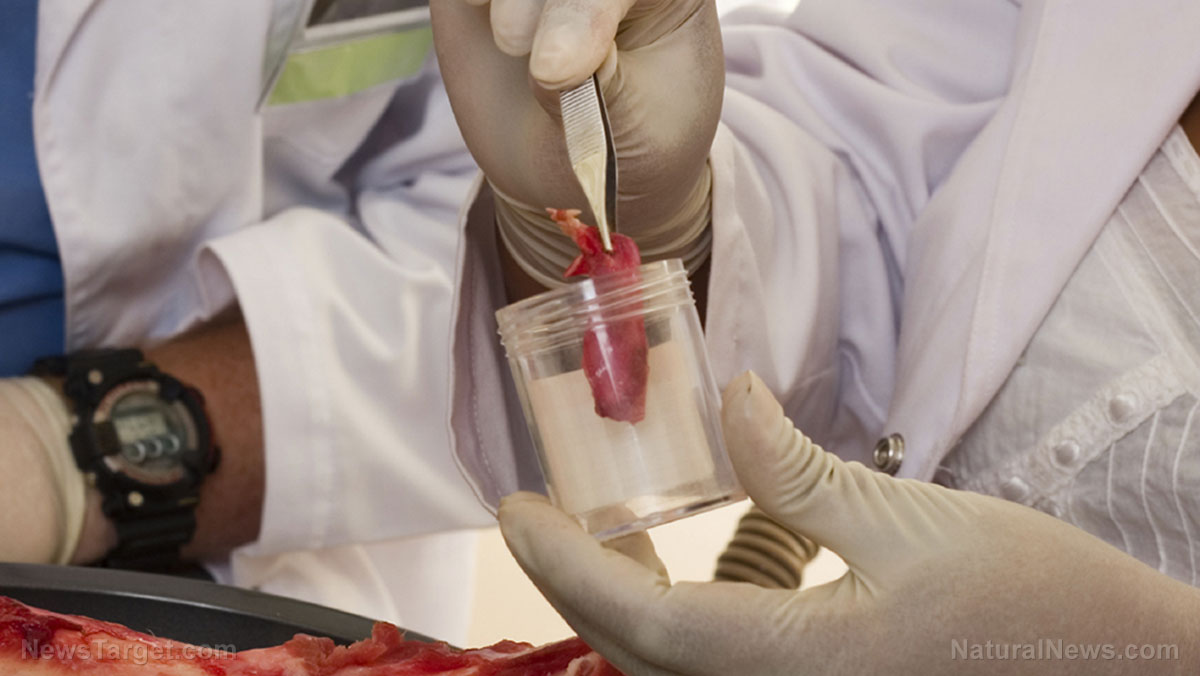Mass poisoning: British town decides to add fluoride to milk, offers it to children
12/20/2016 / By Vicki Batts

Schools in Blackpool, England, will now be offering fluoride-infused milk at school, but there are many questions about such a practice.
After approving the program early in 2016, the northwestern coastal town announced that they would be distributing the fluoridated milk to the town’s some 8,000 school-aged children. The milk will be doled out via Blackpool’s free school breakfast program. Supposedly, the fluoridated milk program serves to address the issue of poor dental health among children in the community. Officials say that half of all 12-year-old children in the town have at least one missing, decayed or filled-in tooth, while the average for England as a whole is around 33 percent. About 41 percent of Blackpool’s children that are 5 years of age have tooth decay – a staggering 15 percent about the national average. Dental health is clearly a major concern for the community, but is mass fluoridation really the way to solve it?
Fluoride is the only substance that is used to mass-medicate entire populations of people. As is the case with water, there is no telling how much milk each child will drink. Consequently, this endeavor could indeed be putting children at risk. The Waking Times reports that Blackpool intends on placing 0.8mg of fluoride in every 189ml carton of milk. This equates to 4.2 parts per million (ppm). It’s worth noting that in the U.S., the recommended safe level of fluoride in water is 0.7 ppm. In 2015, the U.S. Department of Health and Human Service (HHS) reduced it from the range 0.7–to 1.2 ppm, due to concerns about the potential danger associated with maintaining the higher levels. If the HHS is concerned about it, you know it has got to be pretty toxic.
Blackpool Councillor Tony Williams commented, “There is a lot of conflicting evidence about adding fluoride to milk, including that it cancels out the good effects of calcium. You can’t mass medicate children, which is what they are doing. Who is going to monitor how much fluoride children will have in them?”
There are many issues surrounding fluoride. For one, it is a neurotoxic compound that is in no way essential for human health. Not even tooth decay is caused by “fluoride deficiency.” The sole benefits in protection against tooth decay are from topical application of fluoride – such as in toothpaste – not from consumption. The CDC itself has acknowledged this point, and yet for some reason the myth that fluoride consumption somehow provides health benefits continues to persist.
The toxic effects of fluoride are expansive, as it tends to accumulate in bodily tissues. Some believe that dental fluorosis may actually be an indicator of wider, systemic consequences of fluoride exposure. It’s often considered simply a “cosmetic issue,” but dental fluorosis is a permanent condition that is the result of too much fluoride during the first eight years of life. The tooth enamel is permanently damaged thanks to increased porosity. The porousness of the enamel can increase so much that the teeth begin to erode and crumble.
Teeth are not the only body parts affected by fluoride exposure. The bones, pineal gland and arteries can also accumulate fluoride. Fluoride can also damage the brain, leading to developmental neurotoxicity, reduced IQ and other ill effects. Children, unsurprisingly, are particularly susceptible to the toxic effects of fluoride.
And Blackpool plans on loading up its children’s milk with many, many times the amount that even the U.S. government considers safe for human consumption. While it is noble of them to be concerned about the dental health of kids in their community, perhaps it would be better to fund further education on natural ways to promote dental health, such as regular cleaning and avoiding sugary foods and beverages.
Sources:
Tagged Under: children, dental health, England, Fluoride




















